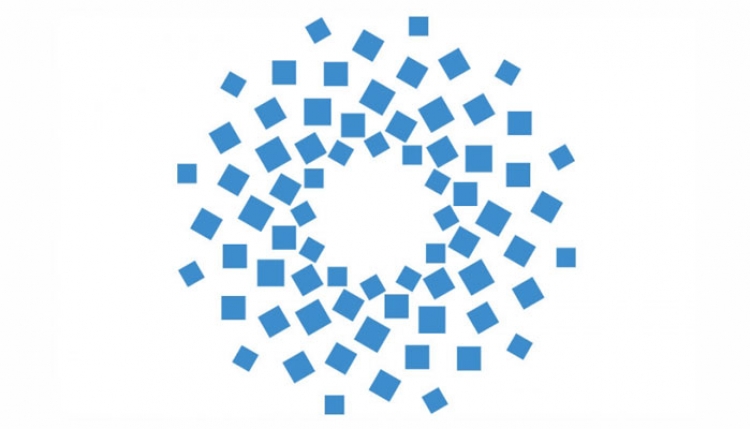Dubai - MENA Herald: Software AG (Frankfurt TecDAX: SOW) announced a major new research programme supported by the Innovative Medicines Initiative (IMI) launches today, which will develop new ways of monitoring major depressive disorder, epilepsy, and multiple sclerosis using wearable devices and smartphone technology.
The RADAR-CNS (Remote assessment of disease and relapse – Central Nervous System) programme aims to improve patients’ quality of life, and potentially to change how these and other chronic disorders are treated.
Continuous remote assessment using smartphones and wearable devices provides a complete picture of a patient’s condition at a level of detail which was previously unachievable. Moreover, it could potentially allow treatment to begin before a patient’s health deteriorates, preventing the patient relapsing or becoming more ill before they seek treatment.
Software AG will provide key elements of its Digital Business Platform, including Apama Big Data Streaming Analytics and Terracotta In-Memory Data Fabric. Dr. Giles Nelson, Software AG’s senior vice president of product management, noted: “The Digital Business Platform will enable researchers to access unprecedented amounts of data from wearable smart devices in real-time for deep insights into brain disorders, ‘personalised analytics’, and early warnings of aberrant behavior.”
RADAR-CNS is jointly led by King’s College London and Janssen Pharmaceutica NV, funded by the Innovative Medicines Initiative (a Public Private Partnership established between the European Federation of Pharmaceutical Industries and Associations (EFPIA) and the European Union) and includes 24 partners from across Europe and the US. The programme brings together experts from diverse fields including clinical research, engineering, computer science, information technology, data analytics and health services.
Epilepsy, depression, and multiple sclerosis are distinct disorders, with different causes and symptoms, all of which can be severely detrimental to patients’ quality of life and life expectancy. For all three disorders, patients often experience periods where their symptoms are manageable, followed by periods of deterioration and acute illness (relapse). Patient surveys have repeatedly highlighted the need to predict when relapses will happen and to improve the treatments which are available to stop them from occurring.
According to co-lead of the RADAR-CNS programme Professor Matthew Hotopf, Director of the NIHR Maudsley Biomedical Research Centre in London, UK, “In recent years, the quality and quantity of data that we can collect using wearable devices and smartphones has exploded. It may be that this sort of data can improve clinical care simply by providing more accurate information. Better still, it may be possible to spot when a patient is getting into trouble before their clinic visit.”
“For example, in depression, someone’s behaviour may change even before they have noticed they are struggling – their sleep may get worse, or they may stop doing so much in the weeks leading up to a relapse. RADAR-CNS will exploit the huge potential of wearable technologies to improve the lives of the millions of people worldwide with chronic illnesses like epilepsy, depression and multiple sclerosis.”
Patients will be involved in RADAR-CNS from the start, helping to identify the most important symptoms to target. They will also advise researchers on how best to implement remote measurement technologies in a way that is acceptable and engaging to patients, including accounting for privacy and security.
Wherever possible, RADAR-CNS will use inexpensive and widely available technology, so that the end results can be made available to as many patients as possible. The research will also be developed in a way that allows the results to be transferred to other diseases, potentially allowing the benefits of remote measurement technologies to become pervasive in medicine, and transforming the way we think about prevention and cure.
According to co-lead of the RADAR-CNS programme Vaibhav Narayan, PhD, Head of Integrated Solutions and Informatics, Neuroscience, Janssen Research & Development, LLC, an affiliate of Janssen Pharmaceutica, “Our goal is to improve clinical care and outcomes by using data generated by patients as they go about their daily lives to predict and pre-empt relapses and improve their quality of life. Such ‘predictive medicine’ solutions will be backed by scientific evidence and will meet regulatory standards. At the same time, the privacy and security of patients and their care-givers will be fully protected.”
RADAR-CNS runs from 2016 until 2021, and is jointly led by King’s College London (KCL) and Janssen Pharmaceutica NV (JPNV).
This project has received funding from the Innovative Medicines Initiative 2 Joint Undertaking under grant agreement No 115902. This Joint Undertaking receives support from the European Union’s Horizon 2020 research and innovation programme and EFPIA. See www.imi.europa.eu for more details.
Professor Matthew Hotopf and colleagues at King’s College London are supported by the NIHR Maudsley Biomedical Research Centre.
The programme is a partnership of 24 organisations from across Europe and the US:
1. King's College London, United Kingdom
2. Provincia Lombardo-Veneta - Ordine Ospedaliero di San Giovanni di Dio - Fatebenefratelli, Italy
3. Lygature, Netherlands
4. Università Vita-Salute San Raffaele, Italy
5. Fundacio Hospital Universitari Vall d'Hebron - Institut de Recerca , Spain
6. University of Nottingham, United Kingdom
7. Centro de Investigacion Biomedica en Red, Spain
8. Software AG , Germany
9. Region Hovedstaden, Denmark
10. Stichting VU-VUMC , Netherlands
11. Universitaetsklinikum Freiburg , Germany
12. Stichting imec Nederland, Netherlands
13. Katholieke Universiteit Leuven , Belgium
14. Northwestern University, United States
15. Universität Passau, Germany
16. Università degli Studi di Bergamo, Italy
17. Charité, Germany
18. Intel Corporation (UK) Ltd, United Kingdom
19. GABO:mi Gesellschaft für Ablauforganisation :milliarium mbH & Co. KG
20. Janssen Pharmaceutica NV, Belgium
21. Biogen Idec Limited, United Kingdom
22. H. Lundbeck A/S, Denmark
23. UCB Biopharma SPRL, Belgium
24. MSD IT Global Innovation Center s.r.o., Czech Republic

